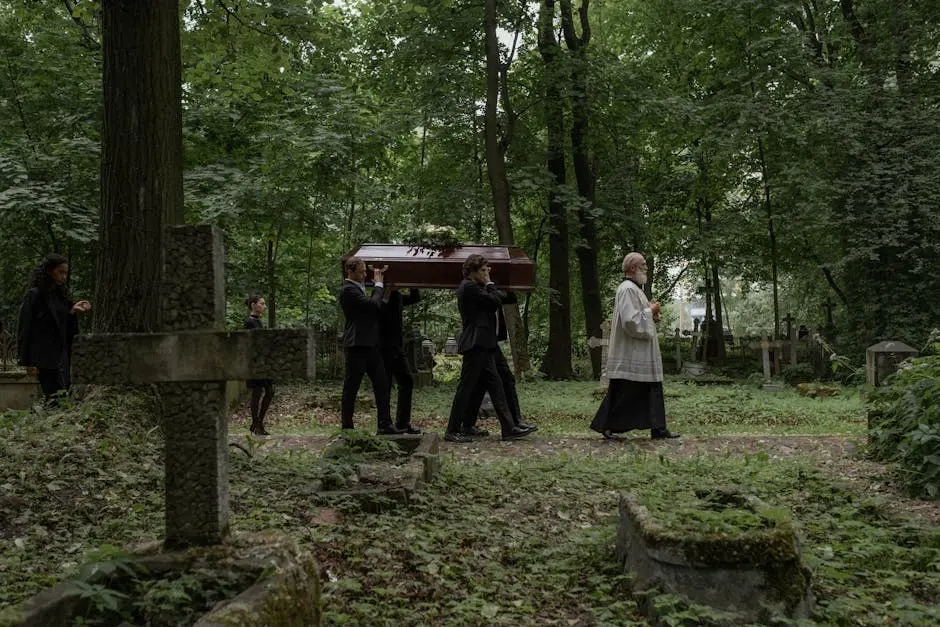In Pueblo culture, honoring traditions during a funeral service is not just a matter of respect but a vital connection to one’s heritage and the community. Understanding the etiquette surrounding these occasions can help provide comfort and support to grieving families. In this blog, we’ll explore key aspects of funeral service etiquette specific to Pueblo residents, ensuring that everyone can pay their respects in a thoughtful and culturally sensitive manner.
Understanding Pueblo Cultural Perspectives on Death
The Pueblo community has a unique worldview regarding death that emphasizes respect for the deceased and their families. It’s essential to recognize how these beliefs shape the etiquette surrounding funerals.
In many Pueblo cultures, death is viewed as a transition rather than the end of existence. This perspective influences the way that life celebrations are held. Grieving is not rushed; instead, it is seen as a shared journey that the community undertakes together. Acknowledging this worldview allows attendees to better understand the practices and rituals that are characteristic of Pueblo funerals.
Moreover, spiritual connections are regarded highly. The belief that the spirit lives on and continues to play an essential role in the lives of the living is powerful. This belief fosters a profound respect towards ceremonies aimed at honoring both the life lived and the spiritual journey ahead. Thus, when one participates in a funeral, it is not just about offering sympathy, but also about joining together in a sacred rite.
Key Funeral Traditions Practiced by Pueblo Residents
Funeral traditions among Pueblo peoples can vary greatly, but many involve customs that honor the spirit of the deceased. Common practices include ritual singing, storytelling, and communal gatherings that serve to reflect on the love shared during the deceased’s life.
Rituals often commence before the funeral service itself, sometimes days in advance. These rituals can involve preparing the body, offerings of food and possessions, and even symbolic gestures of farewell. It’s a time for the community to gather, share memories, and comfort one another. Each activity is intentional, painting a rich tapestry of respect and love for the departed.
Additionally, communal prayers are a powerful part of the funeral tradition, inviting the presence of spiritual guides and ancestors into the ceremony. Such practices not only honor the deceased but also strengthen bonds among attendees, fostering a sense of unity and shared grief that helps the community move forward in their healing process.
Appropriate Attire for Funeral Services
Choosing the right attire is a significant aspect of attending a funeral. Learn about the colors and styles that are deemed acceptable within Pueblo tradition to show respect and solidarity.
While traditional black attire is common in many cultures, Pueblo traditions often prefer earth tones and muted colors. These choices symbolically reflect a connection to nature and the cycle of life. Attendees are encouraged to wear clothing that feels respectful yet comfortable, allowing them to focus on the ceremonies at hand rather than being preoccupied with fashion.
Additionally, it’s important to consider any family requests regarding attire. Some may choose specific colors or clothing types that hold sentimental value. Being mindful of such details is a way to show support for the grieving family and demonstrate respect for their wishes. After all, the ultimate goal is to honor the memory of the deceased while fostering a comforting atmosphere for all.
Offering Support: What to Say and Do
Navigating conversations during a time of grief can be challenging. Here, we discuss appropriate words of condolence and actions that can express your support to grieving families.
Often, the simplest words can be the most soothing. A heartfelt ‘I’m sorry for your loss’ can mean a lot. However, beyond words, it’s important to offer practical support as well. This could be providing meals, offering to help with chores, or just being present. Active participation in supporting the family can relieve some of their burdens.
It’s also wise to steer clear of clichés or overly philosophical remarks. Phrases like ‘They’re in a better place’ may not provide the comfort intended and can feel dismissive of the pain being experienced. Instead, acknowledging the uniqueness of the individual’s life and expressing appreciation for shared memories can resonate more deeply.
The Role of Food in Pueblo Funerals
In many Pueblo funerals, food plays a crucial role. Understanding the customs around food offerings can help you participate meaningfully and support the family during their mourning period.
Typically, food represents community support and nourishment, not just physically, but emotionally. It’s common for attendees to bring dishes that reflect traditional recipes, offering a taste of cultural heritage. These meals become a way for the grieving family to connect with their roots, and sharing food becomes an act of solidarity.
Moreover, communal meals after the service provide an opportunity for attendees to bond and share beautiful memories of the deceased. These gatherings can help alleviate some of the emotional burdens during the grieving process, reminding everyone that they are not alone in their sorrow.
Participating in Community Mourning Rituals
Community participation can be a vital step in honoring a loved one. Learn about common rituals and gatherings that bring friends and family together in shared remembrance.
In Pueblo culture, collective mourning rituals foster a strong sense of unity. These gatherings, often filled with singing and storytelling, allow the community to process grief together, reinforcing their bonds. They highlight the idea that while loss is individual, the journey of mourning is best navigated as a community.
Participating actively in these rituals not only honors the departed but also enriches the experiences that everyone shares. Engaging in prayer circles, lighting candles, or sharing stories about the deceased serves to keep their spirit alive in everyone’s hearts, connecting the community in nuanced and heartfelt ways.
Final Thoughts on Funeral Service Etiquette
By following these guidelines and respecting the rich traditions of the Pueblo community, attendees can foster a supportive environment during a time of loss. Remember, the heart of funeral service etiquette is about honoring the individual and the bonds shared, allowing the community to come together in mourning and celebration of life.

